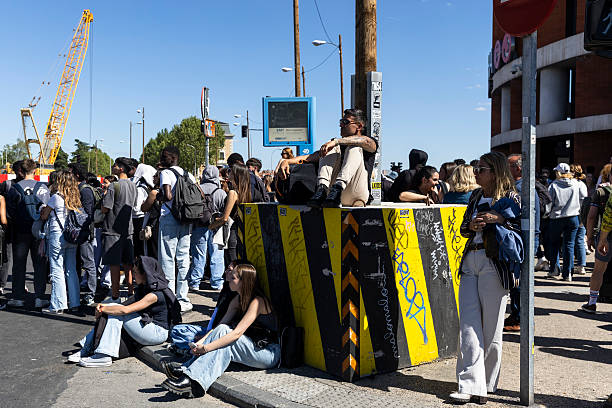Do online petitions actually work?
Petitions are the most common way in which “Interested Bystanders” engage in politics, according to a 2014 Google Civic Innovation Team study headed by Ethnographer Kate Krontiris.

The study defines “Interested Bystanders” as “people (who) are paying attention to issues around them, but not actively voicing their opinions or taking action on those issues.”
Interested Bystanders make up a large portion of those involved in U.S. politics. According to the Google study, the number is around 48.9%.
The massive amount of people who sign petitions as a channel for civic engagement entails questions about their impact: Do these petitions work? When are they necessary?
Petitions of the past
The American Bar Association defines a petition as, “A request to do something, typically to a government agency or public official. The request is made on behalf of a group, with individuals of the group recording their assent in some way, such as signing their name to the request.”
Long before the existence of websites dedicated to hosting petitions, such as Change.org, there were paper petitions.

Historians suggest that the earliest known petition was made by slaves in Ancient Egypt. It is said that the slaves were advocating for better working conditions. It is unknown whether or not that was successful.
The First Amendment of the U.S. Constitution upholds petitioning the government as a proper and lawful avenue for “a redress of grievances.” Innumerable groups have used this avenue to secure better political representation and to address the government directly.
According to law professor Gregory Mark, “Petitioning was at the core of the constitutional law and politics of the early United States. That was why it was included in the First Amendment, not as an afterthought, but rather as its capstone.”
If the right to petition was originally included as a capstone to other fundamental rights, why is it that their efficacy is so often debated?
The Current State of Petitions
A quick glance at Change.org provides an immediate understanding of petitions in their modern context.
The content of recent petitions ranges from advocating for legislative change to fighting for an actor to be employed by a certain TV show, to campaigning for an individual’s legal troubles to be amended.
There is no real requirement for what can be petitioned, leading to the assumption that this deficiency is what caused a decline in petitions that have real-world results.
When do petitions work?
Krontiris’ study indicates that, while they can effect positive changes, petitions generally occupy a “low rung” on the ladder of civic engagement. The ladder model is based on information provided by Interested Bystanders from the study.
It is organized as follows:
Rung 1: Sharing an opinion
Rung 2: Signing a petition
Rung 3: Voting
Rung 4: Protesting and campaigning
Rung 5: Organizing
While petitioning isn’t the lowest rung on the ladder of civic engagement, it certainly isn’t the highest.
This model indicates that petitions are a mere stepping stone for effecting political change, both locally and nationally. And yet, given their history, petitions are nonetheless a necessary component to the tiers that lead to broader changes.
The necessity of petitions is bolstered by their inclusion in the constitution, as well as their ability to unite a group of people who wouldn’t have worked together otherwise.
Given these considerations, petitions can only be viewed as a preliminary stage for effecting change, not the sole catalyst for it.
When are petitions necessary?
While necessity is determined on an individualized basis, there are historical implementations of petitions that point to when they appear necessary. These uses generally pertain to human rights, including issues of freedom and suffrage.
One early example of such a petition was penned by Benjamin Franklin, during his role as president of the Pennsylvania Society.

Petition from the Pennsylvania Society for Promoting the Abolition of Slavery, February 3, 1790. (National Archives Identifier 306388)
On February 3, 1790, well before slavery was abolished, Franklin wrote the petition calling on Congress to “devise means for removing the Inconsistency from the Character of the American People” and to “promote mercy and justice towards this distressed race.”
While Franklin’s petition didn’t spur Congress to action at that point, it nevertheless paved the way for abolitionist debates that continued until nearly 80 years later.
Franklin’s petition is just a drop in a seemingly infinite ocean of others. And yet, it shows what words themselves can do to incite political change.







Conversation